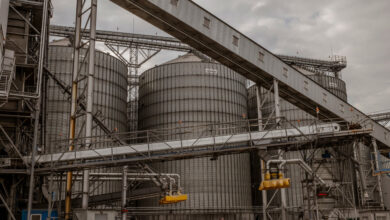Germany’s chancellor meets with Putin as the tone of the crisis shifts.

With the Kremlin signaling an openness to further diplomacy and Ukraine hinting at concessions to avert war, Chancellor Olaf Scholz of Germany met with President Vladimir V. Putin of Russia in Moscow on Tuesday, becoming the latest Western leader to embark on shuttle diplomacy to defuse the crisis in Eastern Europe.
In opening remarks broadcast by Russian state media, Mr. Putin told Mr. Scholz that a “significant part” of their meeting would be focused on Ukraine and other matters of European security. The meeting lasted about three hours, according to Russian state media, and a joint news conference by the two leaders was expected later.
The German leader’s one-day trip to Moscow, a day after visiting Kyiv, comes as the Russian Defense Ministry said that some Russian troops amassed around Ukraine were returning to their bases, a tentative sign that the threat of an imminent Russian invasion was easing.
Moscow’s continued talks with the West were a sign that the Kremlin was holding out the possibility that it could avoid military action and still achieve key objectives. The prospect for such a scenario was bolstered in Kyiv, the Ukrainian capital, where President Volodymyr Zelensky left open the possibility of dropping his country’s ambition to join the NATO alliance — a move that would help fulfill one of Mr. Putin’s key demands.
Mr. Scholz’s visit follows similar swings in recent weeks by President Emmanuel Macron of France and a series of foreign ministers, all trying to head off an armed clash as Mr. Putin has amassed ground and naval forces on three sides of Ukraine.
Mr. Scholz, who took office two months ago, was slow to take a prominent role in diplomatic efforts to stop Russia from invading Ukraine, but has been meeting other Western leaders almost every day for the past week. His trip to Moscow comes a day after he traveled to Kyiv, where he assured Mr. Zelensky of Germany’s support in the face of Russian aggression, albeit short of offering any weapons.
In a joint news conference on Monday, both Mr. Scholz and Mr. Zelensky hinted at the possibility of concessions related to Ukraine’s ambitions to join NATO, which are enshrined in the country’s constitution, but which Western officials say cannot be fulfilled in the foreseeable future.
Mr. Scholz reaffirmed Germany’s commitment to the principle of allowing every country choose its own alliances. But he also said the question was not currently on the table and urged for flexibility to de-escalate the current crisis.
“There are no spheres of interest in Europe about which other states can decide,” Mr. Scholz said. “But still, we should look at reality and that is: There is a conflict that we want to de-escalate. That is the task of the hour.”
Mr. Scholz said Germany was prepared for “very far-reaching and effective sanctions” if Russia invades. But as in the past, he did not say what those would be — and in particular did not say if he would shut down Nord Stream 2, the nearly completed pipeline project to deliver Russian natural gas to Germany.
Analysts note that Mr. Scholz has little of substance to offer Mr. Putin, but that the meeting could reveal whether he is willing to take a harder line against Moscow.
“What people are still waiting to hear is the sentence: If Putin invades, Nord Stream 2 is dead,” said Timothy Garton Ash, a professor of European history at Oxford University. “It’s important because it’s the sentence everyone wants to hear. And it’s the only way to resolve the ambiguity in Germany’s stance.”





